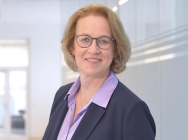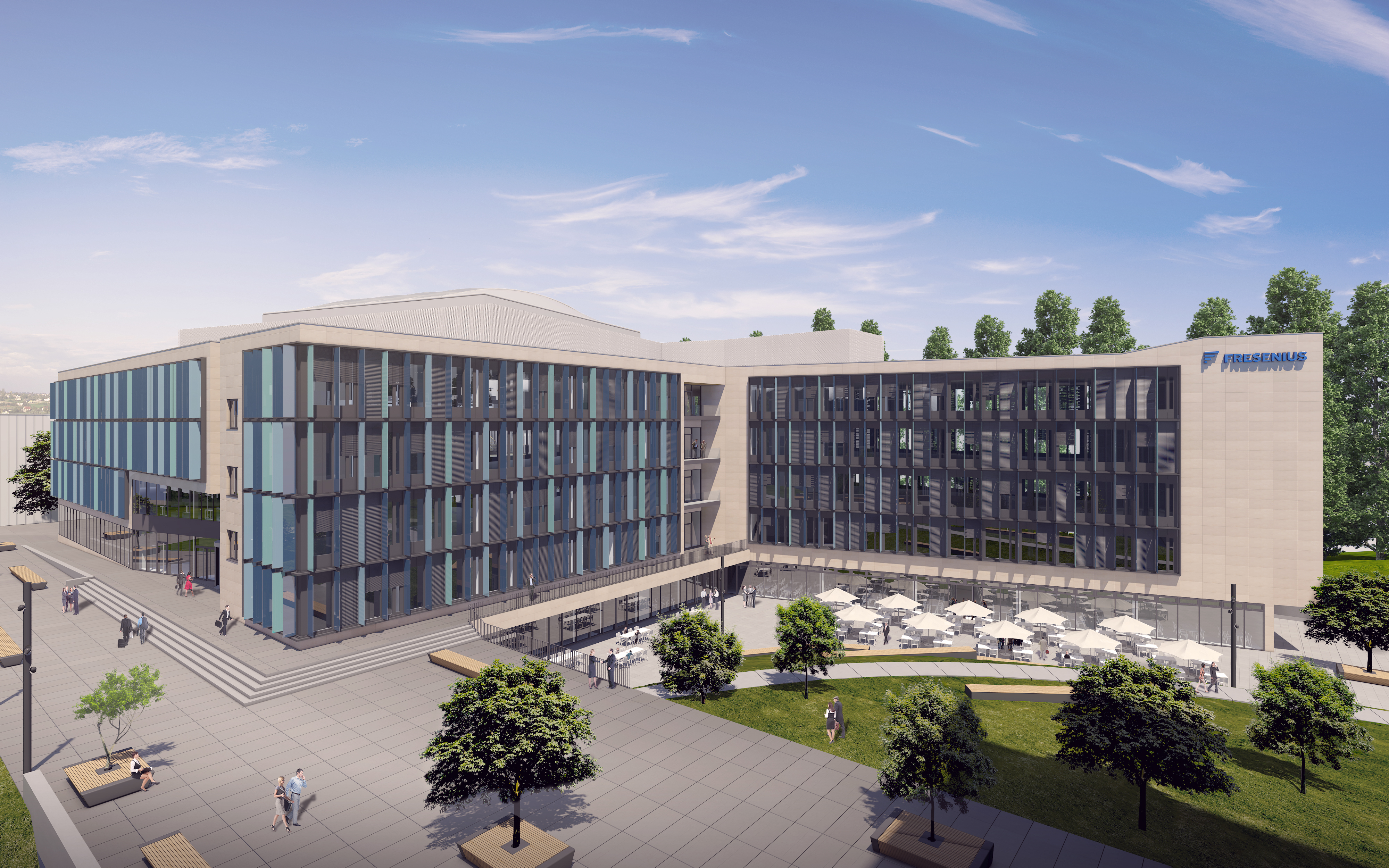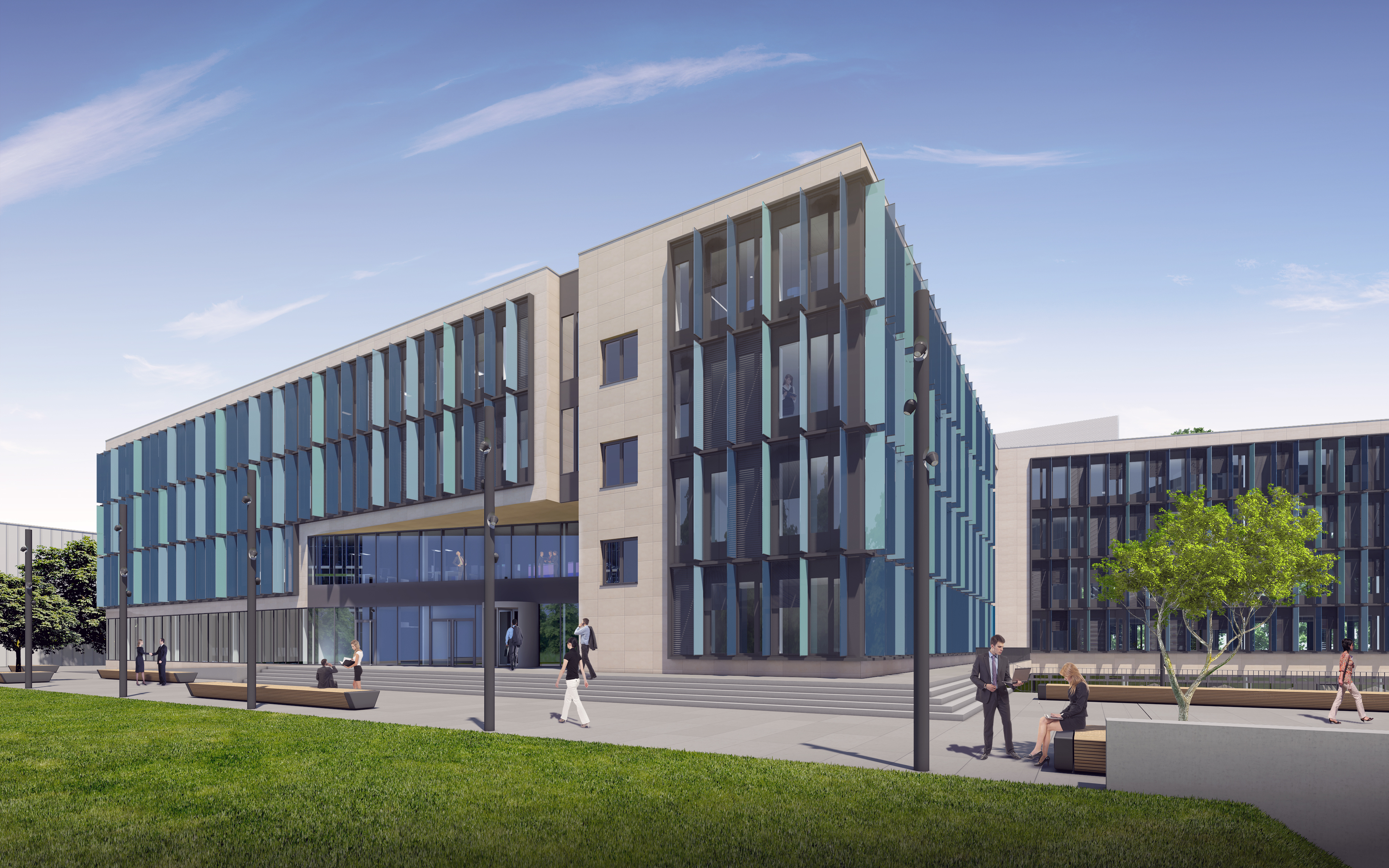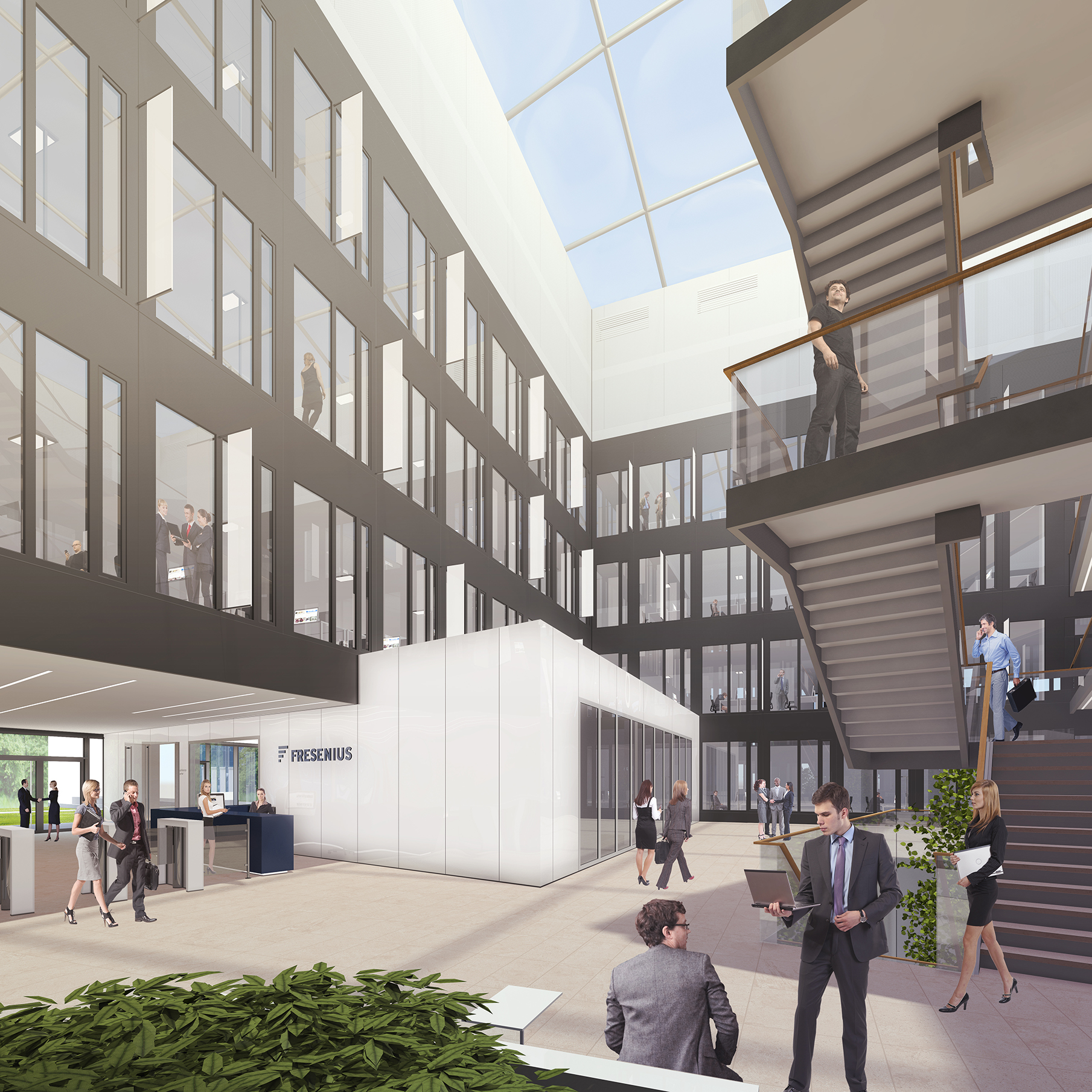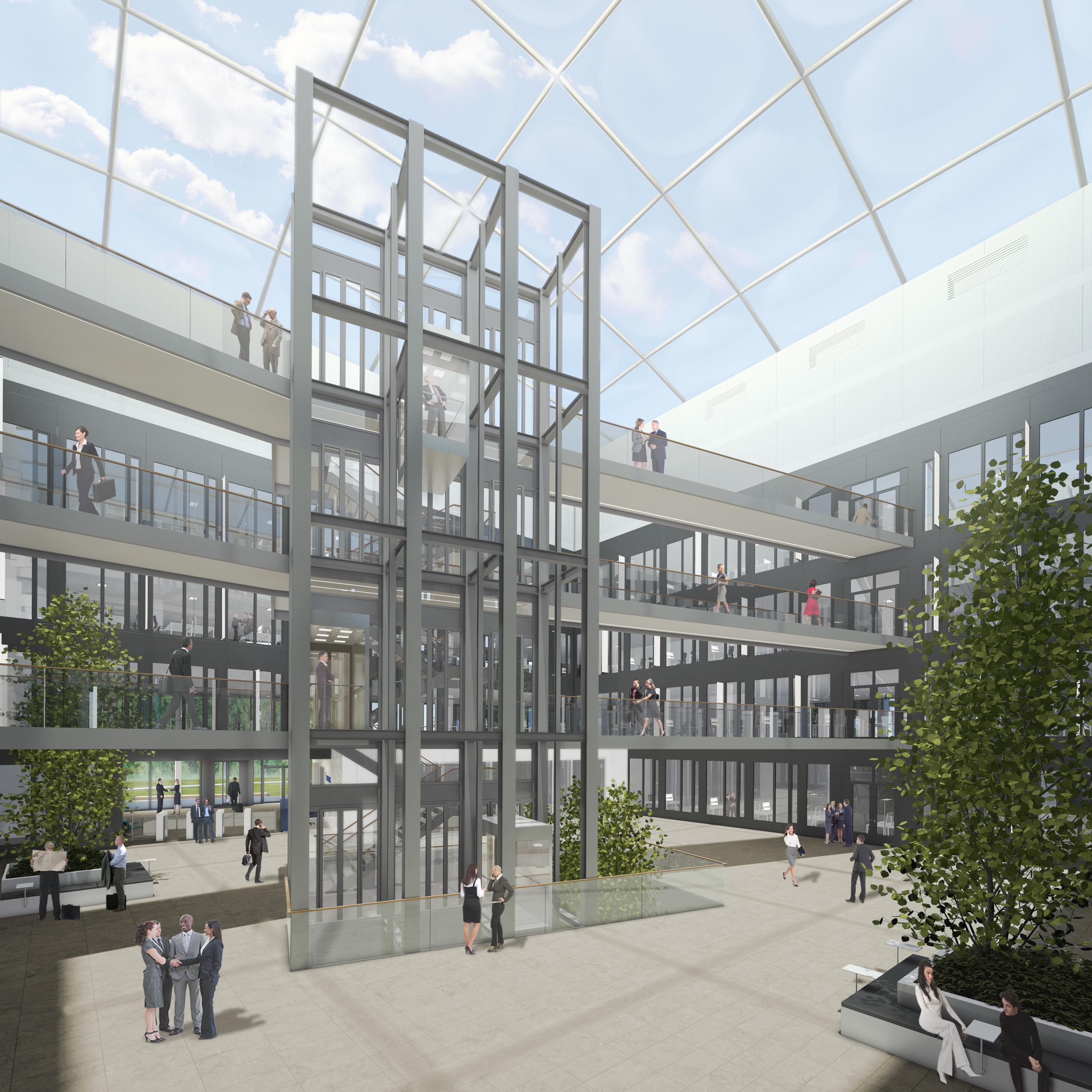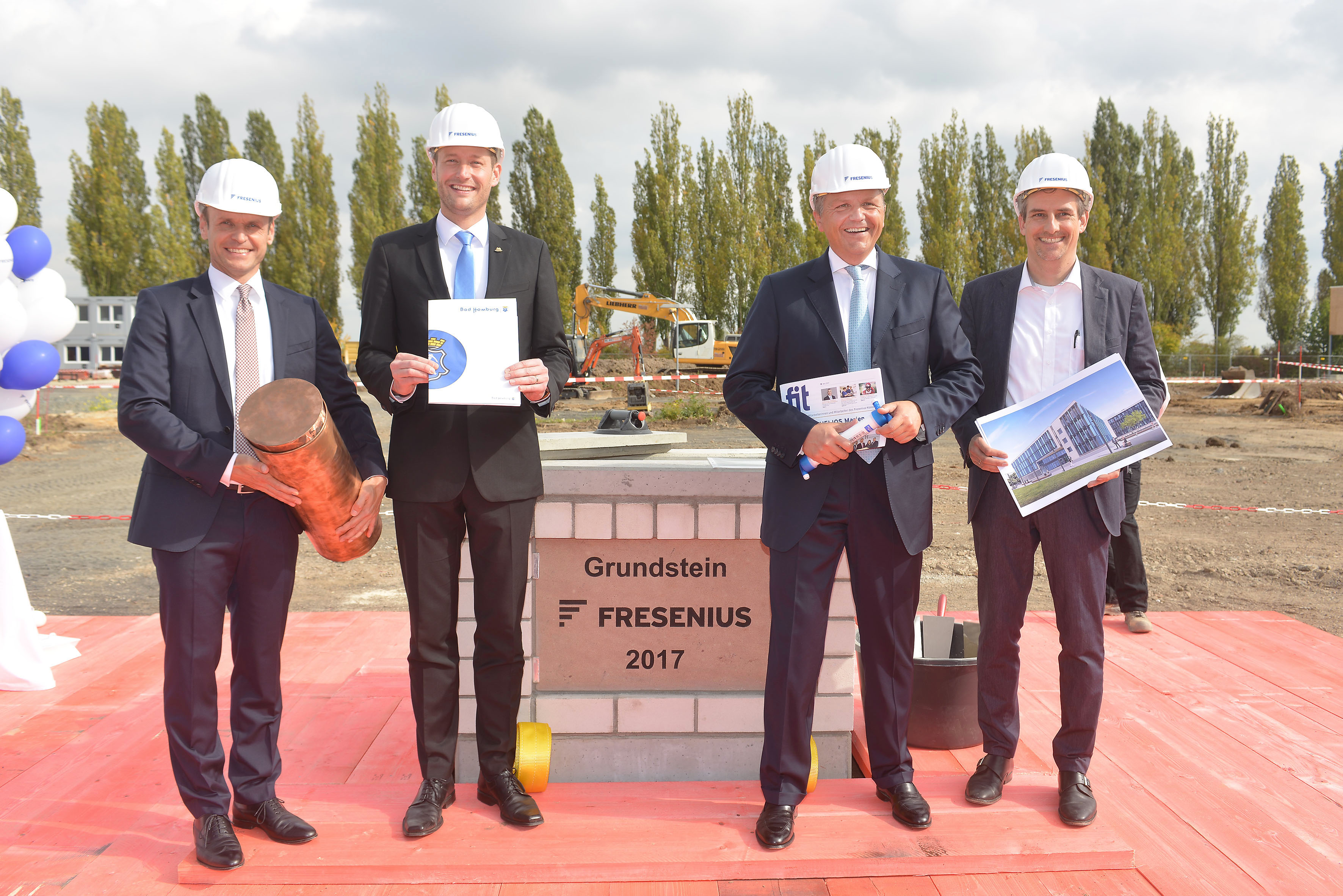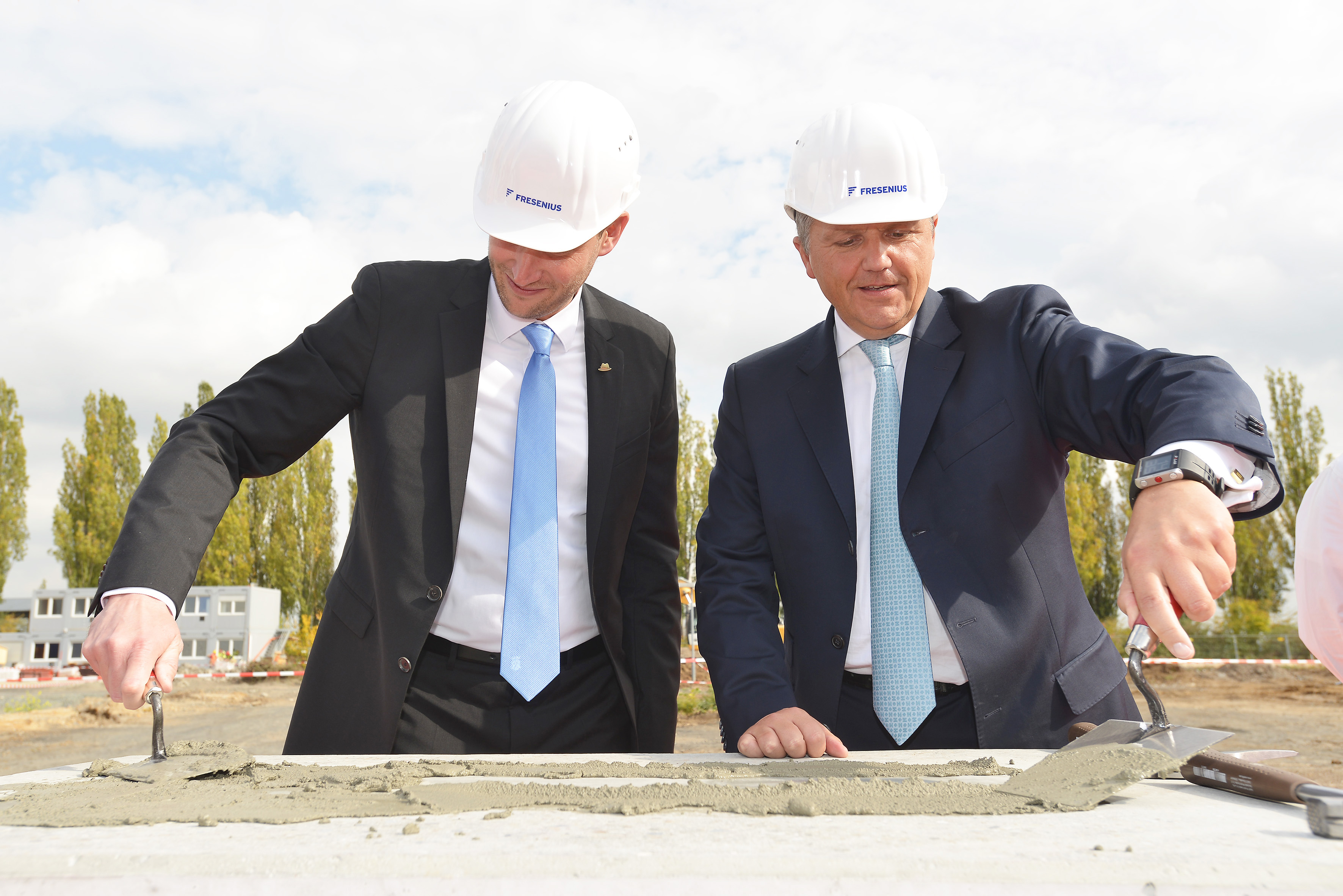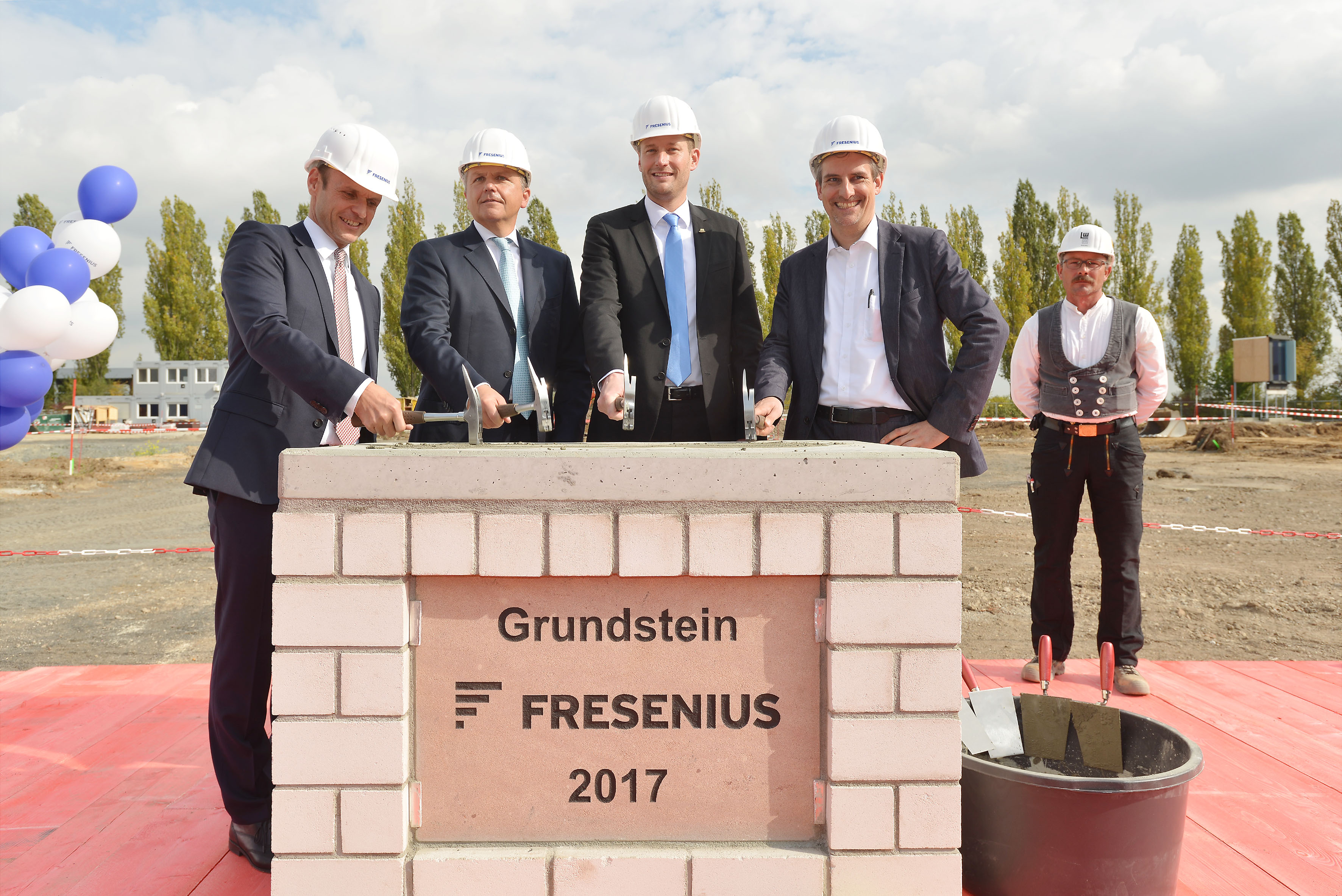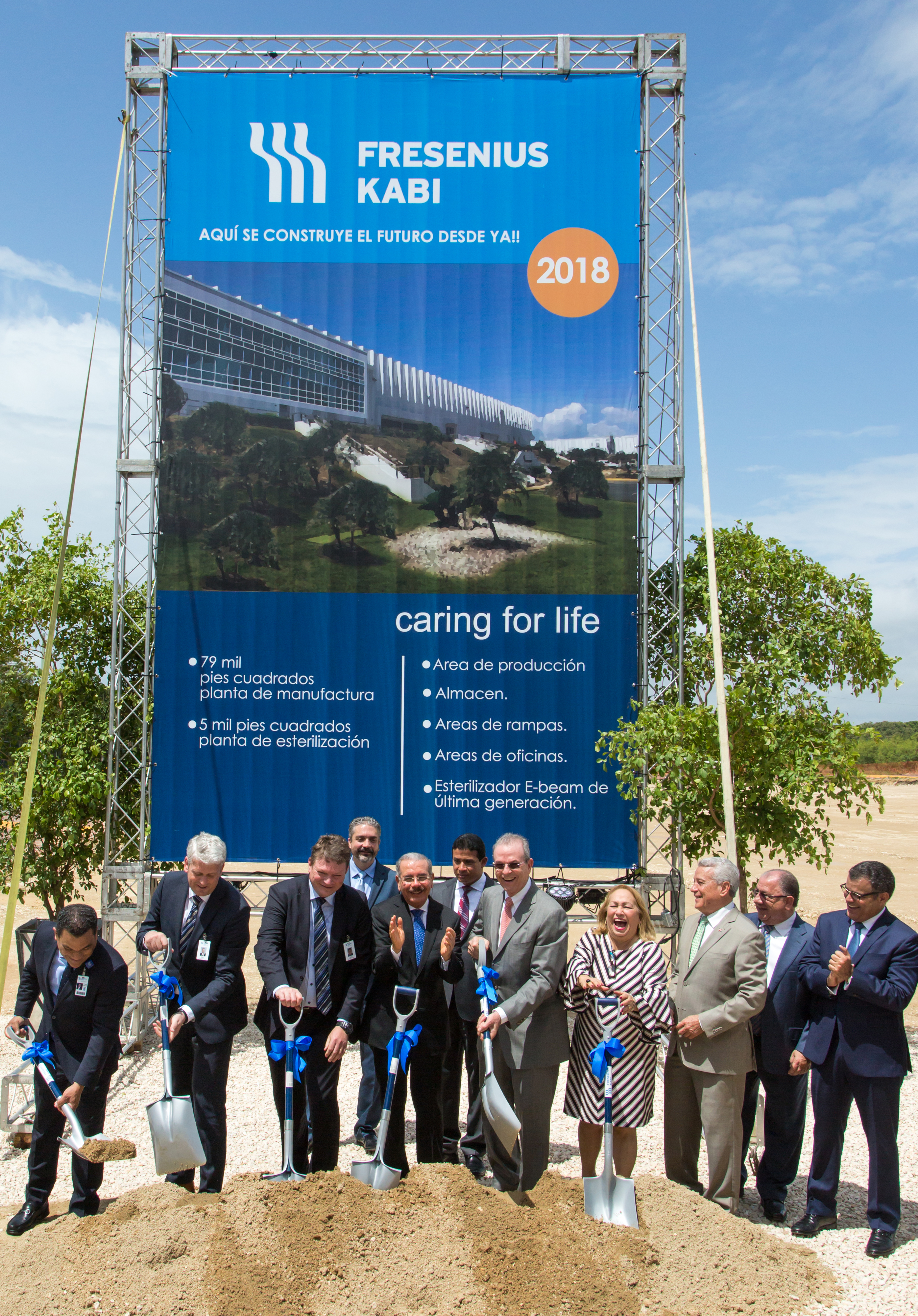
Fresenius Kabi has started work on a major expansion of its production site for medical devices in Haina, Dominican Republic, which will create about 500 new jobs. At a groundbreaking ceremony yesterday attended by the country’s President Danilo Medina, the cornerstone was laid for the approximately 7,400-square-meter (80,000-square-foot) expansion. It will significantly increase capacity in Haina through the addition of new plasma kit assembly lines, injection molding equipment, sterilization units and dedicated warehouse space.
Completion of the expansion is scheduled for late 2019. The new employees, including production workers, technical personnel, engineers and managers, will join a Fresenius Kabi workforce in Haina that currently numbers about 3,000. The total investment is more than €20 million ($25 million).
The Haina plant manufactures and exports apheresis systems for plasma and platelet collection as well as medical devices for blood separation. These products are used, for example, to allow blood components to be separated while the blood is being donated, making it possible for these life-saving donations to be used more quickly and efficiently.
Mats Henriksson, CEO of Fresenius Kabi, said the products manufactured by the company in the Dominican Republic are important in the provision of healthcare far beyond the country. “Our employees here in Haina do an excellent job, and will continue to produce high-quality medical devices that provide healthcare professionals with the equipment they need to help their patients,” Henriksson said.
Also on hand for the ceremony was Dr. Christian Hauer, President Medical Devices Division of Fresenius Kabi. “This expansion will enable us to reach new potential in regard to our production capacities,” Hauer said. “Our strong commitment to our production site in Haina will benefit even more patients, and allow us to play an even greater role in improving the lives of chronically and critically ill people around the world.”
Caption for press photo:
Front row from left to right: Bernardo Alvarez, General Plant Manager Haina, Christian Hauer, Board Member of Fresenius Kabi and President of the Medical Devices Division, Mats Henriksson, CEO of Fresenius Kabi, Danilo Medina, President of the Dominican Republic, Manuel Tavares, CEO PIISA Industrial Park, Luisa Fernandez, Free Zone Council Director, Nelson Toca, Minister of Commerce and Industry of the Dominican Republic, Ramon Fadul, Labor Minister of the Dominican Republic, Tommy Galan, Senator of San Cristobal Province
This release contains forward-looking statements that are subject to various risks and uncertainties. Future results could differ materially from those described in these forward-looking statements due to certain factors, e.g. changes in business, economic and competitive conditions, regulatory reforms, results of clinical trials, foreign exchange rate fluctuations, uncertainties in litigation or investigative proceedings, and the availability of financing. Fresenius does not undertake any responsibility to update the forward-looking statements in this release.
Quirónsalud Tenerife Hospital has opened a new intensive care unit, equipped with the latest medical equipment for treating as many as six critically ill patients at a time. Quirónsalud, the Spanish hospital group that is part of Fresenius Helios, invested more than €1 million in the 400-square-meter (4,300-square-foot) ICU.
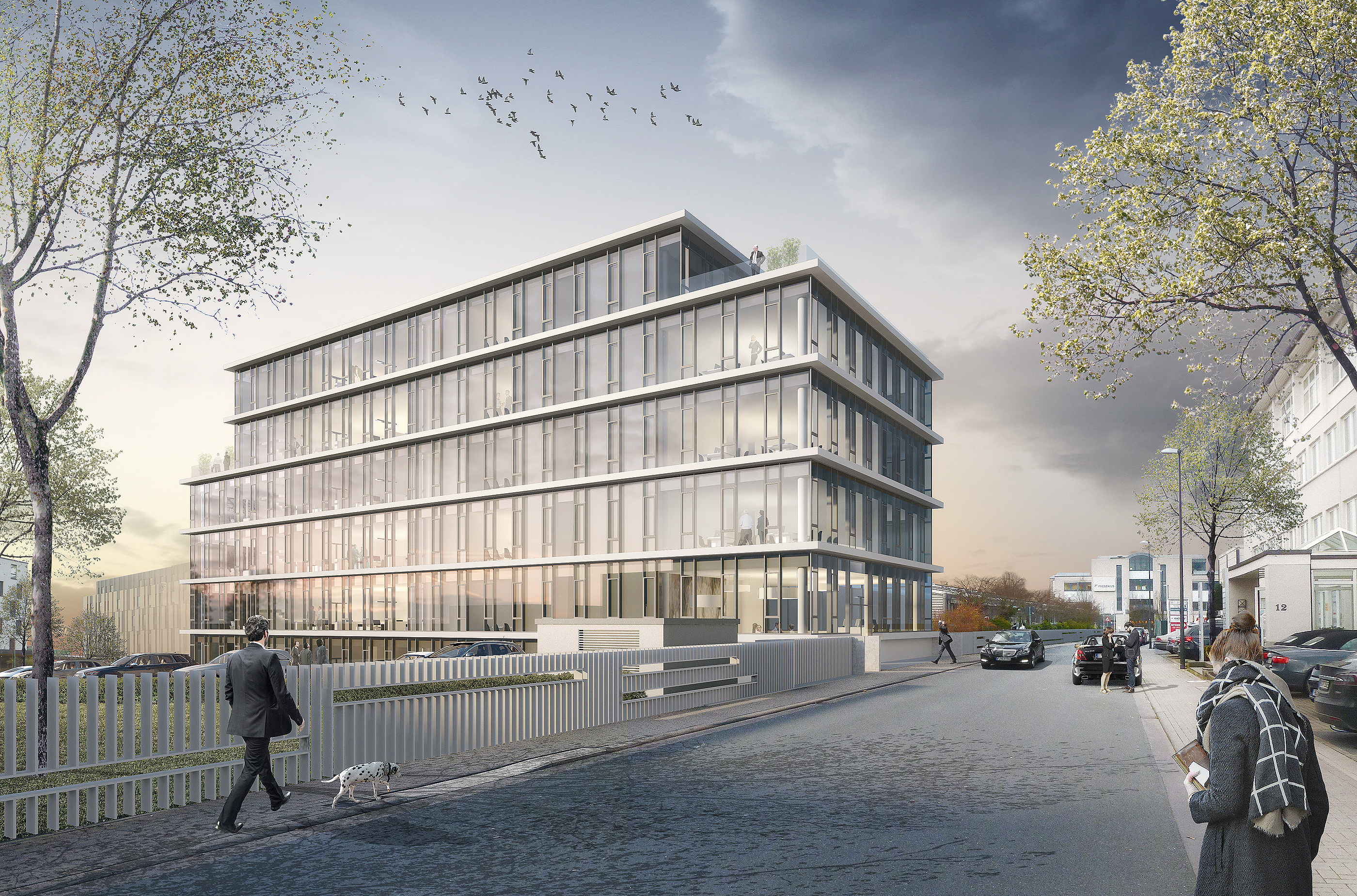
Fresenius is making steady progress on the expansion of the global healthcare group’s headquarters in Bad Homburg, Germany. Construction started this week on a new research and development building for Fresenius Medical Care, which will offer 150 modern workplaces over six floors. Scheduled for completion in mid-2019, the new building is being erected beside the company’s existing R&D center on Daimler Street and will be connected to it by an overhead walkway.
The goal is to bring all R&D employees of Fresenius Medical Care in Bad Homburg together at one site. “Bad Homburg is an important location in Fresenius Medical Care’s worldwide research and development network,” said Stephan Sturm, CEO of Fresenius. “Our employees here develop life-saving equipment and digital solutions for the treatment of people with chronic kidney failure. For that reason we want to offer them the best possible work environment.”
Meanwhile, construction of the new office building on Else-Kröner Street in Bad Homburg, with about 600 workplaces, is on schedule. Structural work should be completed this spring, and the building’s opening is planned for next year. Fresenius currently employs about 3,600 people in Bad Homburg, and about 300 in the neighboring town of Oberursel.
Fresenius Helios recently opened a 130-bed building at the company’s hospital in Dachau, a city near Munich. The new structure is part of a €55 million renovation and expansion program that will include a modernization of the existing hospital building over the next two years. Meanwhile, in the northern German city of Nienburg/Weser, work has started on a building that will almost double the size of the emergency department at Fresenius Hospital Mittelweser. About €2.3 million is being invested in this project, which is scheduled for completion in the autumn.
Quirónsalud, the Spanish hospital group that is part of Fresenius Helios, will build a hospital in the city of Alcalá de Henares, just outside of Madrid. The approximately 11,000-square-meter (118,000-square-foot) facility will include 106 beds, four operating rooms and two delivery rooms. Quirónsalud will invest about €27 million in the new hospital. It is scheduled to open in 2019.
Fresenius Kabi opened the extension of its production plant in Mihla, Germany, today with a festive dedication ceremony attended by Mayor Rainer Laemmerhirt. The healthcare company invested about €10 million in the project.
In the new production hall, employees will make core injection-molded components for pharmaceutical containers, port systems – which enable infusions to be administered as gently as possible, for example during chemotherapy – and medical disposables. The latter include such products as feeding tubes and giving sets, which are routinely used in hospitals to administer infusion therapies, clinical nutrition and intravenous drugs. The extension will enable Fresenius Kabi to produce components it previously had to purchase from suppliers.
At approximately 1,000 square meters (10,700 square feet), the new hall doubles the amount of space available for production activities at the plant in Mihla, a town in the eastern German state of Thuringia. The project also includes an expansion of the plant’s warehouse to hold as many as 2,000 pallets – a more than six-fold increase.
Dr. Christian Hauer, President Medical Devices Division of Fresenius Kabi, said: “Products from Fresenius Kabi are used in the care of chronically and critically ill patients, which makes the highest standards of quality and reliability essential. Our employees in Mihla have been doing outstanding work for many years. I’m delighted that with this extension, we are making our Mihla production location ready for the future.”
Mayor Laemmerhirt praised Fresenius Kabi for its commitment to his community: “I am very happy that Fresenius Kabi, as a globally active company, is investing here in Mihla. This can also be seen as a positive sign for our region and its economic development.”
Fresenius Kabi is expanding its activities in Indonesia. PT ETHICA Industri Farmasi, a joint venture of Fresenius Kabi and the Indonesian pharmaceuticals company SOHO Global Health, opened a new plant in Cikarang, just outside the country’s capital and biggest city Jakarta. The plant’s approximately 230 employees will produce a wide range of injectable drugs needed in therapeutic areas including gynecology, anesthesia and intensive care. The products are planned for use by Indonesian patients and for export to other Southeast Asian countries. Fresenius Kabi employs a total of about 530 people in Indonesia.
Fresenius Vamed has acquired a rehabilitation clinic in Switzerland, its third in the country. The clinic in Seewis has about 75 beds and specializes in heart disease, internal medicine and psychosomatic illnesses. Fresenius Vamed is now active in all major areas of rehabilitative medicine in Switzerland, with a clinic in Zihlschlacht that specializes in neurology and one in Dussnang specializing in orthopedics and geriatrics.
Quirónsalud, the Spanish hospital group that is part of Fresenius Helios, is undertaking a major expansion of University Hospital Quirónsalud Madrid. A new, 6,000-square-meter (almost 65,000-square-foot) wing scheduled for completion by next summer will add 52 new beds, bringing the hospital’s total to 288. The expansion will also include 25 doctors’ offices, nine resuscitation rooms and three delivery rooms, as well as two hybrid operating rooms that can be used both for conventional operations and for minimally invasive surgical procedures – so-called “keyhole surgery.” All expansion and modernization measures should be completed by the end of 2018. The total investment is about €31 million.
Fresenius laid the cornerstone today for a new office building in Bad Homburg, part of the company’s headquarters expansion, at a festive ceremony attended by employees along with political and business representatives.
The building at company headquarters on Else-Kröner-Strasse is a response to the steadily increasing number of Fresenius employees. When completed in 2019, its approximately 21,500 square meters (231,000 square feet) of floor space will house some 600 modern office workplaces, conference rooms, an additional staff canteen and a parking garage.
With its “L” form, the five-story structure was designed to fit into the overall architectural concept alongside the two existing headquarters buildings, but with new interpretations of some key architectural elements. For example, the façade will include translucent panels in the distinct design colors of the four Fresenius business segments. Access to all areas of the building will be through an 800-square-meter atrium crowned by a foil-cushion roof, with all three headquarters buildings joining on to a new outdoor common area where employees can enjoy their breaks on nice days.
Stephan Sturm, CEO of Fresenius, pointed in his speech to the contribution that modern office concepts can make to optimizing cooperation among colleagues. “The cornerstone we are laying today is for a new building – but also for even better cooperation between our employees. If we want to continue growing, we will need good cooperation. We must share ideas, and learn from each other. Growth also requires flexibility, and for this reason we are creating more spaces that are modern and open-concept, which will facilitate communications and can be modified in response to changing needs.”
Mayor Alexander Hetjes cited the important role Fresenius plays in his city: “Fresenius represents the modern face of Bad Homburg as a competence center for healthcare. From its base here the company is not just one of the biggest employers in the Rhine-Main region, but is active worldwide. Fresenius, through its many activities, also helps shape life in our city. The headquarters is now undergoing a major expansion, and Bad Homburg wishes the company, and all the employees who will work in this modern building, great success and a good future in our city.”
Designed by the Wiesbaden firm BGF+ Architekten, the new building is being erected on a former parking lot and part of the land previously occupied by a high-bay warehouse. After five months of renovation and rebuilding completed in August, the modernized warehouse now takes up less space but has 60 percent more capacity thanks to the installation of new shelving technology systems.
A new five-story parking garage with space for 681 vehicles that also opened last month is another component of the expansion project, in which Fresenius is investing about €70 million. The company currently employs about 3,400 people in Bad Homburg, and an additional 300 in the nearby town of Oberursel.
This release contains forward-looking statements that are subject to various risks and uncertainties. Future results could differ materially from those described in these forward-looking statements due to certain factors, e.g. changes in business, economic and competitive conditions, regulatory reforms, results of clinical trials, foreign exchange rate fluctuations, uncertainties in litigation or investigative proceedings, and the availability of financing. Fresenius does not undertake any responsibility to update the forward-looking statements in this release.
Pagination
- Previous page
- Page 5
- Next page


